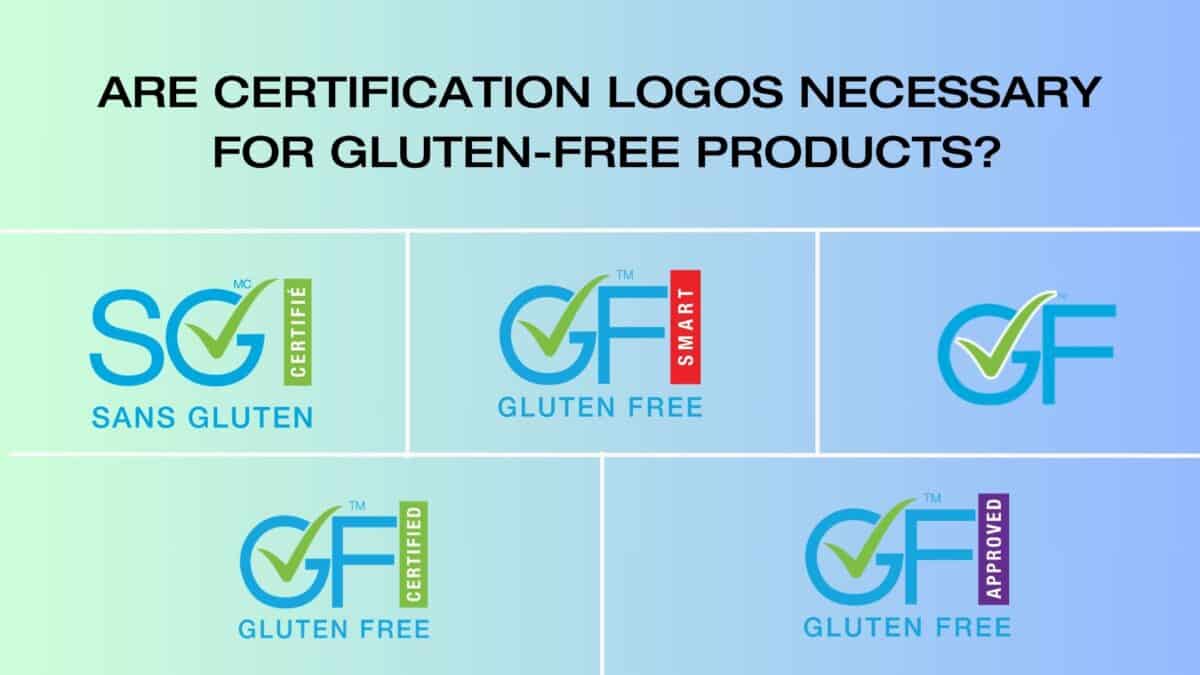
Do You Really Need Certification Logos on Gluten-Free Food?
Navigating the world of gluten-free products is challenging for consumers, particularly for those with celiac disease or severe gluten intolerance. While certification logos are not mandatory for gluten-free products, their presence significantly enhances consumer confidence and eases the decision-making process. This blog explores the role and benefits of gluten-free certification logos in today’s market.
The Role of Gluten-Free Certification
Certification logos serve as a third-party validation that a product meets specific, stringent criteria for being gluten-free. Organizations, such as the Gluten-Free Food Program (GFFP), offer certification programs that involve rigorous testing and auditing processes. The GFFP set threshold level for gluten, is 5 parts per million (ppm) or less, while others are set below the 20 ppm standard established by the U.S. Food and Drug Administration (FDA) for gluten-free labeling.
Although manufacturers are not required by law to obtain gluten-free certification, doing so provides an additional layer of assurance to consumers. This certification process involves thorough inspection and verification, ensuring that the products meet the highest standards for gluten-free quality.
Benefits of Gluten-Free Certification Logos
1. Consumer Confidence and Reassurance
One of the primary benefits of a gluten-free certification logo is the reassurance they provide to consumers. For individuals with celiac disease or gluten sensitivity, even trace amounts of gluten can cause severe health issues. A certification logo acts as a mark of credibility, indicating that the product has been independently tested and verified to meet strict gluten-free standards. This assurance is crucial for those who rely on gluten-free products for their health and well-being.
2. Ease of Identification
Shopping for gluten-free products can be overwhelming, with many consumers spending extra time scrutinizing ingredient lists and labels. Certification logos simplify this process by providing a clear, easily recognizable mark that signifies a product’s gluten-free status. This ease of identification helps consumers quickly and confidently make purchasing decisions, knowing that the products they choose are safe for their dietary needs.
3. Credibility and Trustworthiness
Certification logos enhance the credibility and trustworthiness of gluten-free products. In an age where misinformation can spread quickly, having a trusted third-party certification adds a layer of authenticity that is highly valued by consumers. This trust can lead to increased brand loyalty, as consumers are more likely to stick with brands that prioritize transparency and quality assurance.
4. Market Differentiation
For manufacturers, obtaining gluten-free certification can be a strategic move to differentiate their products in a competitive market. With the gluten-free market continuing to grow, certification logos can help products stand out on store shelves and appeal to a broader audience. This differentiation can be particularly beneficial for new brands looking to establish themselves or existing brands aiming to expand their market share.
5. Educational Tool
Certification logos can also serve as an educational tool for consumers. By familiarizing themselves with different certification marks, consumers can become more informed about the standards and practices behind gluten-free products. This knowledge empowers consumers to make more informed choices and advocate for better labeling and transparency within the food industry.
Conclusion
While certification logos are not legally required for gluten-free products, they offer substantial benefits for both consumers and manufacturers. For consumers, these logos provide reassurance, ease of identification, and trustworthiness, making the shopping experience less stressful and more reliable. For manufacturers, certification can enhance credibility, differentiate products, and tap into the growing demand for gluten-free options.
In summary, gluten-free certification logos may not be necessary, but they are highly beneficial. They act as a mark of reassurance and credibility, ensuring that products meet stringent gluten-free standards. As the gluten-free market continues to expand, the value of these certification logos will likely increase, further solidifying their importance in helping consumers make safe and informed choices.
